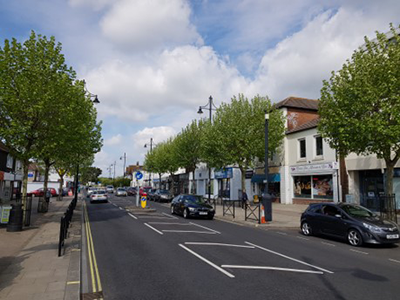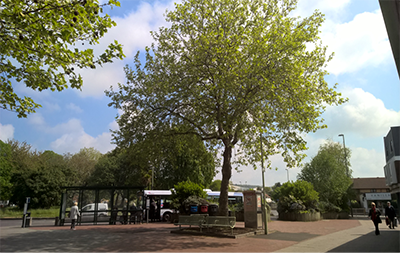Benefits of urban trees
 The trees and woodlands of Fareham, collectively termed as the urban forest, provide numerous benefits, not just for those that live here, but for the wider environment. These can be broadly broken down into economic, social, health, environmental and cultural benefits. Trees have an impact on our lives directly and indirectly; therefore it is important to understand why we need to invest in them.
The trees and woodlands of Fareham, collectively termed as the urban forest, provide numerous benefits, not just for those that live here, but for the wider environment. These can be broadly broken down into economic, social, health, environmental and cultural benefits. Trees have an impact on our lives directly and indirectly; therefore it is important to understand why we need to invest in them.
Trees add immeasurably to the quality of life in our towns and cities – here are some of the key benefits:
- Shading
- Evaporative cooling
- Interception and capturing of airborne pollutants (particulates)
- Interception and storage of rainfall
- Storage of atmospheric carbon
- Soil conservation
- Biodiversity / wildlife habitat
- Commercial / economic, and
- Improving human health and wellbeing.
 There is a fundamental relationship between trees and biodiversity. Trees bring birds, insects and small mammals to their surroundings and provide the environment to support an enormous number of species. An area rich in the number and variety of tree species provides habitat for a diverse wildlife population.
There is a fundamental relationship between trees and biodiversity. Trees bring birds, insects and small mammals to their surroundings and provide the environment to support an enormous number of species. An area rich in the number and variety of tree species provides habitat for a diverse wildlife population.
Over the next decade, the urban environment is expected to increase by nearly 30%. The urban forest is becoming increasingly recognised for its importance as part of the solution for many pressing problems in ours towns and cities. The urban forest therefore should not be an afterthought, but recognised for its role supporting the Council's wider strategic priorities for the Borough and focus on achieving broader benefits.
The existence of high quality, well-managed trees and woodlands can dramatically enhance the appearance of both urban and rural environments. This in turn has a significant bearing on people's perceptions, both of their surroundings and of their quality of life.
It is generally accepted that trees are attractive features within our towns, villages and countryside, which contribute significantly to the character of the borough. Beyond purely visual features, trees provide many other benefits which are often overlooked.
The Council aims to promote and enhance the benefits of trees in our communities.
